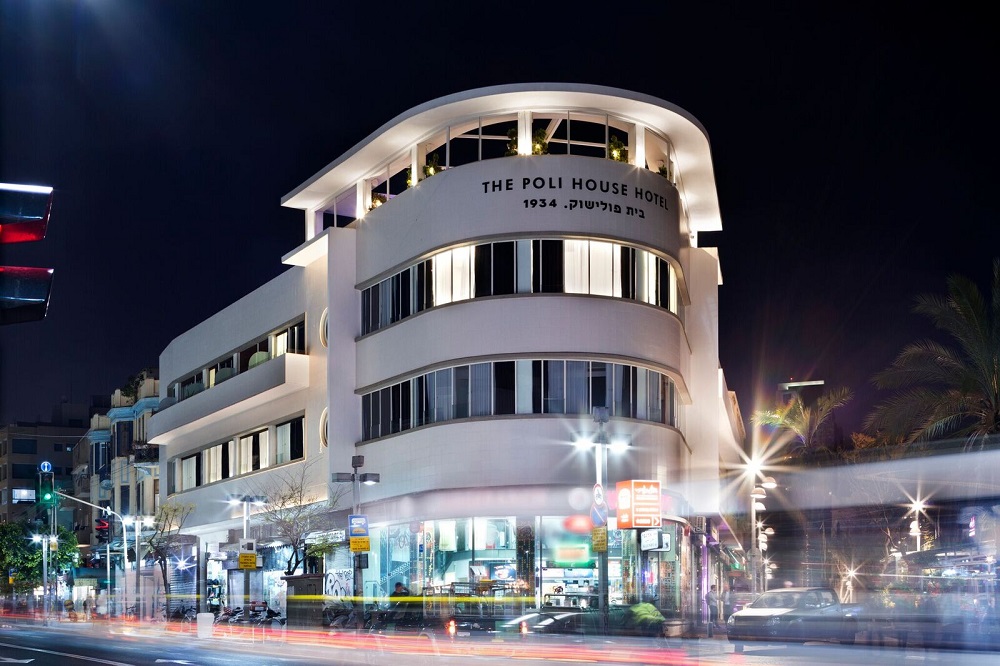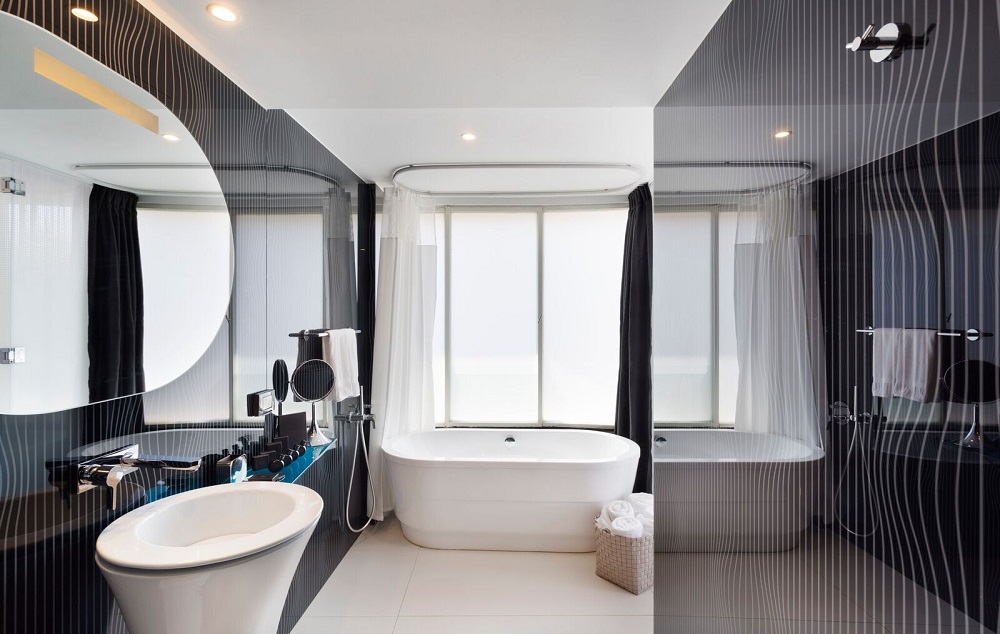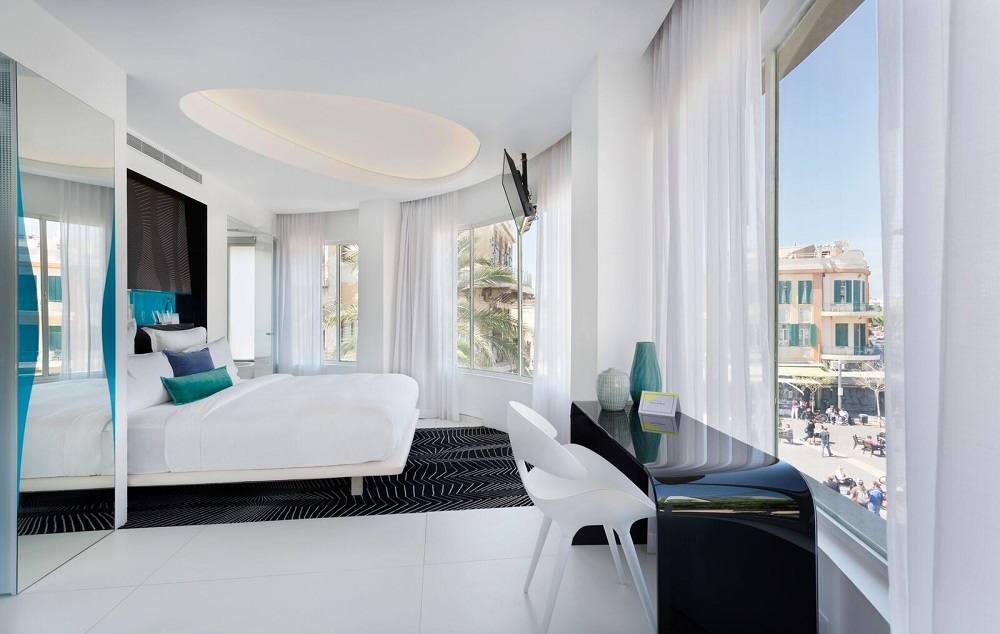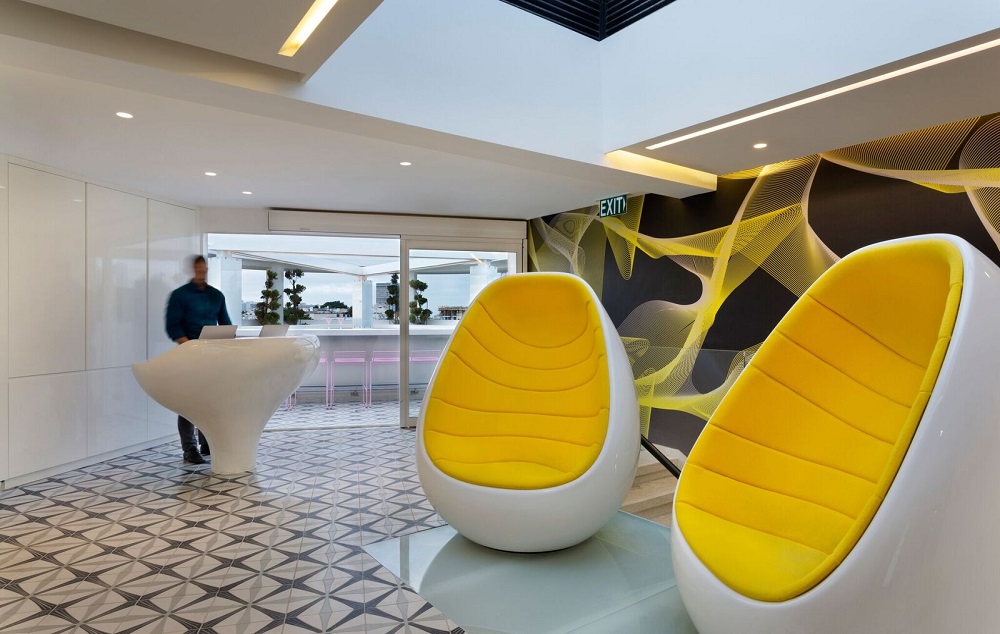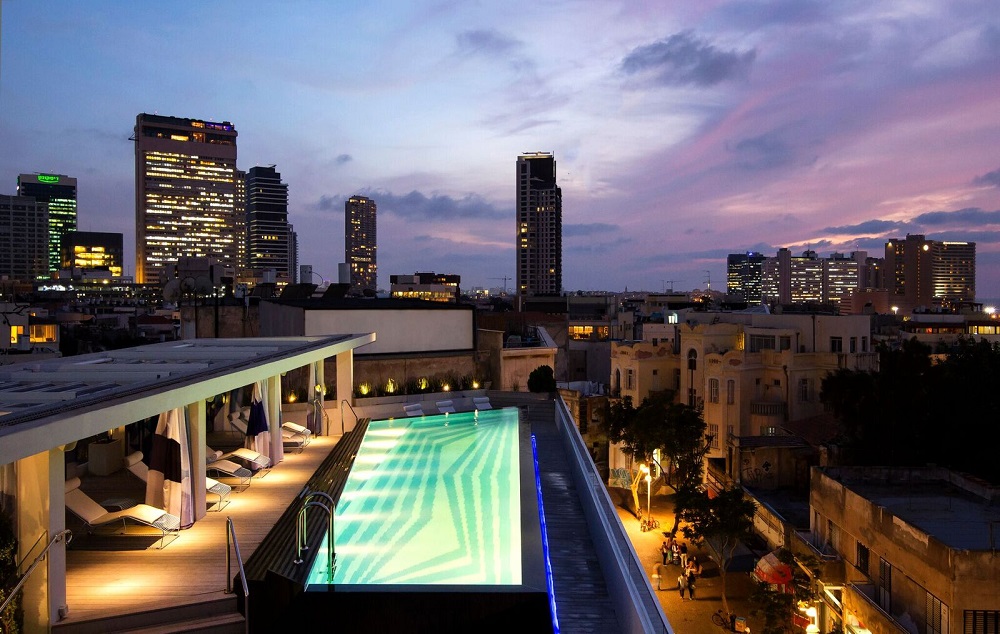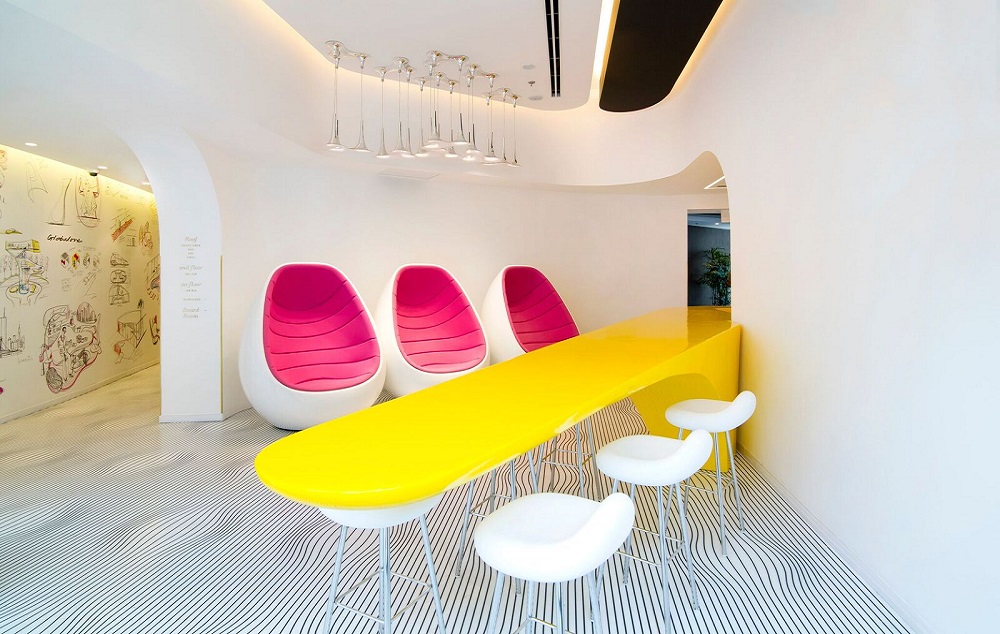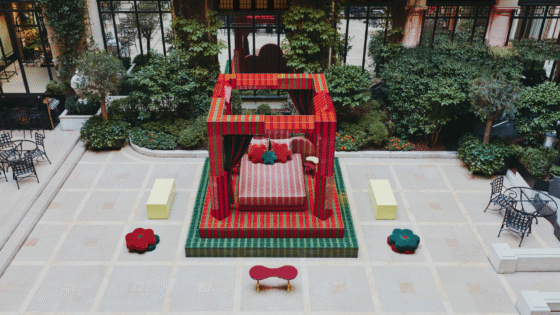The Poli House is a 40-room “experimental luxury” property harnessing the essence of Tel Aviv’s past, present and future and dressed with interior designs by world renowned industrial designer Karim Rashid, located in the epicentre of Tel Aviv’s cultural core.
Housed in a Bauhaus architecture-style building meticulously restored over a three-year-period by Nitza Szmuk, recipient of the prestigious Emet Prize for her extensive work on preserving and restoring buildings in Tel Aviv, was called upon to spearhead the restoration, conservation as well as execute the new design plans for this stunning architectural marvel.
The Poli House boasts warm and clean yellow, blue, green and white interiors created exclusively by world-renowned industrial designer/architect Karim Rashid. The Poli House’s homage to 1930’s Tel Aviv, tech-savvy design elements, health and style-conscious amenities and proximity to the Carmel Market and Mediterranean promenade combine for an unwavering leisure-soaked property unlike any other in the White City.
Rashid explains the rationale behind his signature motif, a fantastic melange of whimsical, futuristic interior design embodied by The Poli House as follows: “We usually only look to the past for inspiration, but the mentality of Tel Aviv is very contemporary, focusing less on the past and looking forward to the future. The Poli House embodies just that. I tried to embrace that Tel Aviv spirit, energy and love of life into the function of the hotel, turning an emotion into a tangible form through colors and graphics.
“My design for Poli House has a great duality about it. The hotel is a marriage of Bauhaus & Digital Age, form & function, crafts & fine arts, digital & organic. The simplicity of the architecture is juxtaposed with digitally-driven ornamentation and form. I imagined the Bauhaus in the 21st. Century, having a universal language that crosses borders and connects all of us. Tel Aviv is that kind of city, with every culture integrated. This pristine White City building is juxtaposed with a digipop aura, the day in which we live,” he adds.

